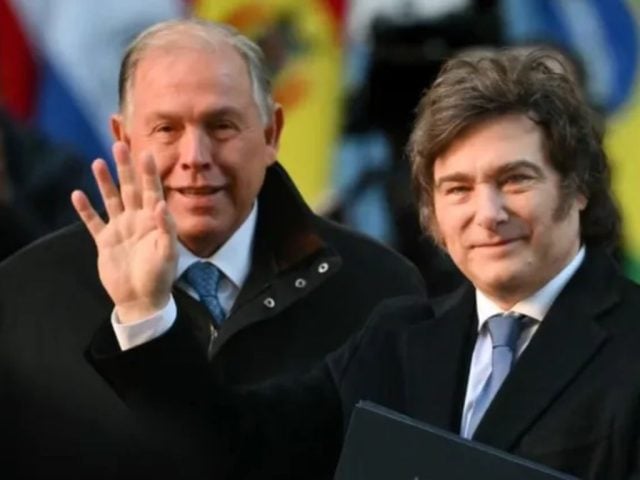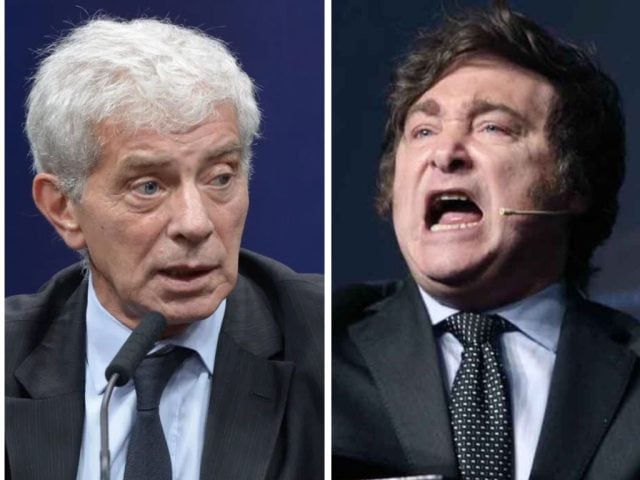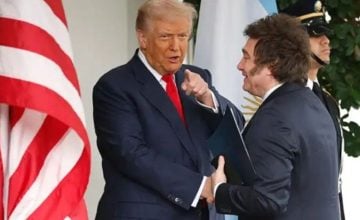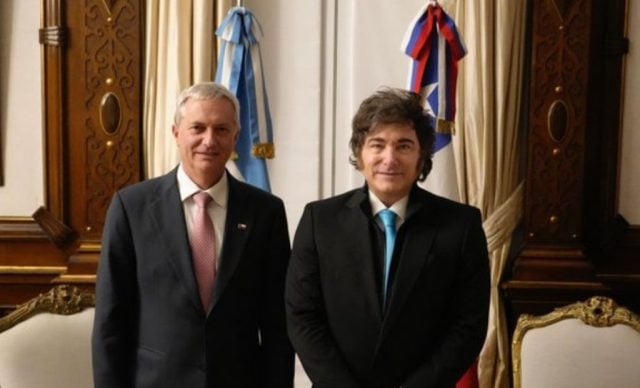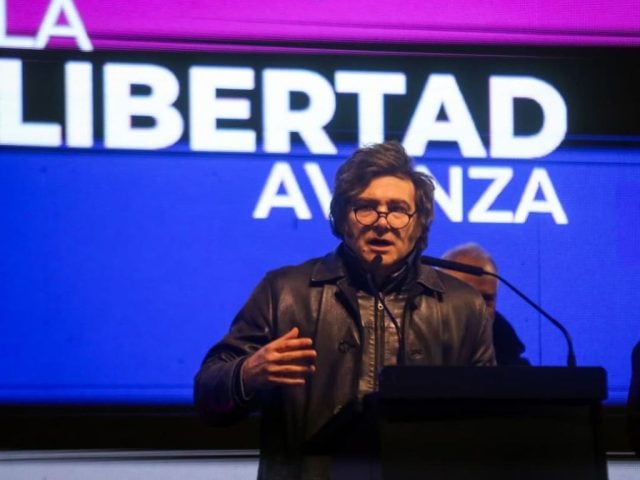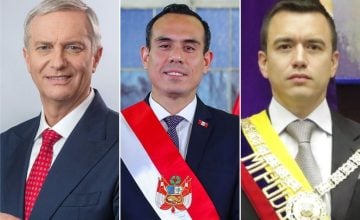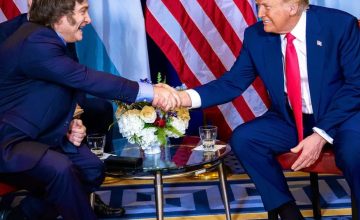Original article: Canciller se baja del barco: Milei navega a las elecciones con tripulación fracturada
In a dramatic turn of events within the political landscape of Argentina, President Javier Milei faces internal fractures as his Foreign Minister, Gerardo Werthein, unexpectedly departs just hours ahead of the critical legislative elections set for Sunday, October 26.
Werthein’s resignation starkly highlights the ongoing struggles within the libertarian government, undermining Milei’s carefully orchestrated plans for a post-election rebranding, which has left the nation in a state of uncertainty.
Trigger Point: Werthein Breaks the Pact
Reports from Argentine media indicate that Werthein’s resignation came as no surprise to officials at the Casa Rosada, although its timing was explosive. Last Friday, during a meeting at the Quinta de Olivos, the Foreign Minister informed the far-right leader of his decision to leave, a resignation Milei reluctantly accepted, as reported by Página/12, noting that it is rooted in intense internal conflict that has not spared the government from personal disputes.
According to the report, «key internal factions are constantly maneuvering and jockeying for positions that may become vacant.» However, the pact was clear: his resignation was supposed to be announced on Monday, after the elections, alongside other cabinet changes, but Werthein chose to act prematurely.
The unexpected timing of the Foreign Minister’s resignation, just four days before the elections, was allegedly due to a feud with Karina Milei, the libertarian leader’s sister and Secretary General of the Presidency.
Sources indicate that «the minister was troubled by, among other things, his sister’s interference in his department and her role as a de facto Foreign Minister during international trips, sitting next to Donald Trump at meetings, which intensified tensions until they reached a breaking point.»
Moreover, Página/12 revealed that officials at Casa Rosada are frustrated not only by the leak of his resignation but also by «a series of appointments (around 80) that the minister signed in the days leading up to his departure. These will now undergo a thorough review process.»
Internal Battles in the Libertarian Government
The crisis ignited by Werthein’s exit exposes a government besieged by multiple fronts of conflict and personal ambitions vying for control within the libertarian administration.
It has come to light that Werthein had been facing escalating tensions with Santiago Caputo, an influential presidential advisor lacking an official title but wielding significant power, allowing him to conduct affairs based on his informal contacts in the United States, including with Trump’s purported «advisor,» Barry Bennet.
These tensions peaked when the «digital patrol» aligned with Caputo publicly blamed Werthein for Donald Trump’s apparent misunderstanding that the upcoming elections in Argentina were midterm rather than presidential.
Daniel Parissini, aka «El Gordo Dan,» one of Caputo’s operatives, tweeted, «As we warned at La Misa the other day, Donald thinks the upcoming Argentine elections are presidential instead of midterms. But well, if we only had a Foreign Minister who would rather not be calling Luis Juez to apologize for the foolishness said by a fat fool on Twitter, but instead listening to what Donald Trump has been saying about the topic, things would have been different.»
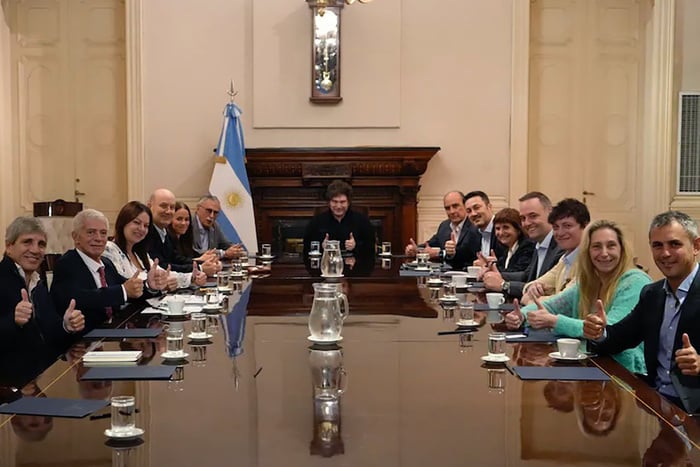
The Game of Chairs: Who Replaces Whom
With Werthein’s departure, the scramble for positions to fill the power vacuums left after Sunday’s elections has commenced.
According to Página/12, one of the frontrunners for the role of Foreign Minister is the current Chief of Cabinet, Guillermo Francos, while star advisor Santiago Caputo is also in contention. Rumors suggest that former PRO deputy Federico Pinedo has met at Casa Rosada.
If Francos moves to the Foreign Ministry, his position would become available for Caputo, formalizing his extensive unofficial power.
In the case of the Head of Cabinet, Patricia Bullrich and Luis Petri might vacate their positions to take their seats in Congress.
On the matter of the Ministry of Justice, it is presumed that Mariano Cúneo Libarona’s resignation is practically confirmed. In the Interior Ministry, Lisandro Catalán, «Francos’ protégé, could be replaced by Diego Santilli should the movements in the Head of Cabinet materialize.
Meanwhile, in the Ministry of Economy, Página/12 reports that Federico Sturzenegger, the current Deregulation Minister, «is doing everything he can to take over ‘Toto’ Caputo’s chair,” though the head of the economic portfolio still enjoys presidential backing.
Navigating Election Turmoil with a Fragmented Crew
As Argentines prepare to vote, Javier Milei’s government is confronting its most severe crisis since taking office at Casa Rosada. Werthein’s resignation is not an isolated event but represents the most visible symptom of an administration struggling to manage its own contradictions.
The promised stability and clear direction espoused by official discourse clash with the reality of a disintegrating cabinet, besieged by internal squabbles and open fronts. The much-anticipated post-election relaunch increasingly resembles a chaotic realignment.
Indeed, as Página/12 reported, «Milei’s cabinet did not survive to see the elections on Sunday.»
